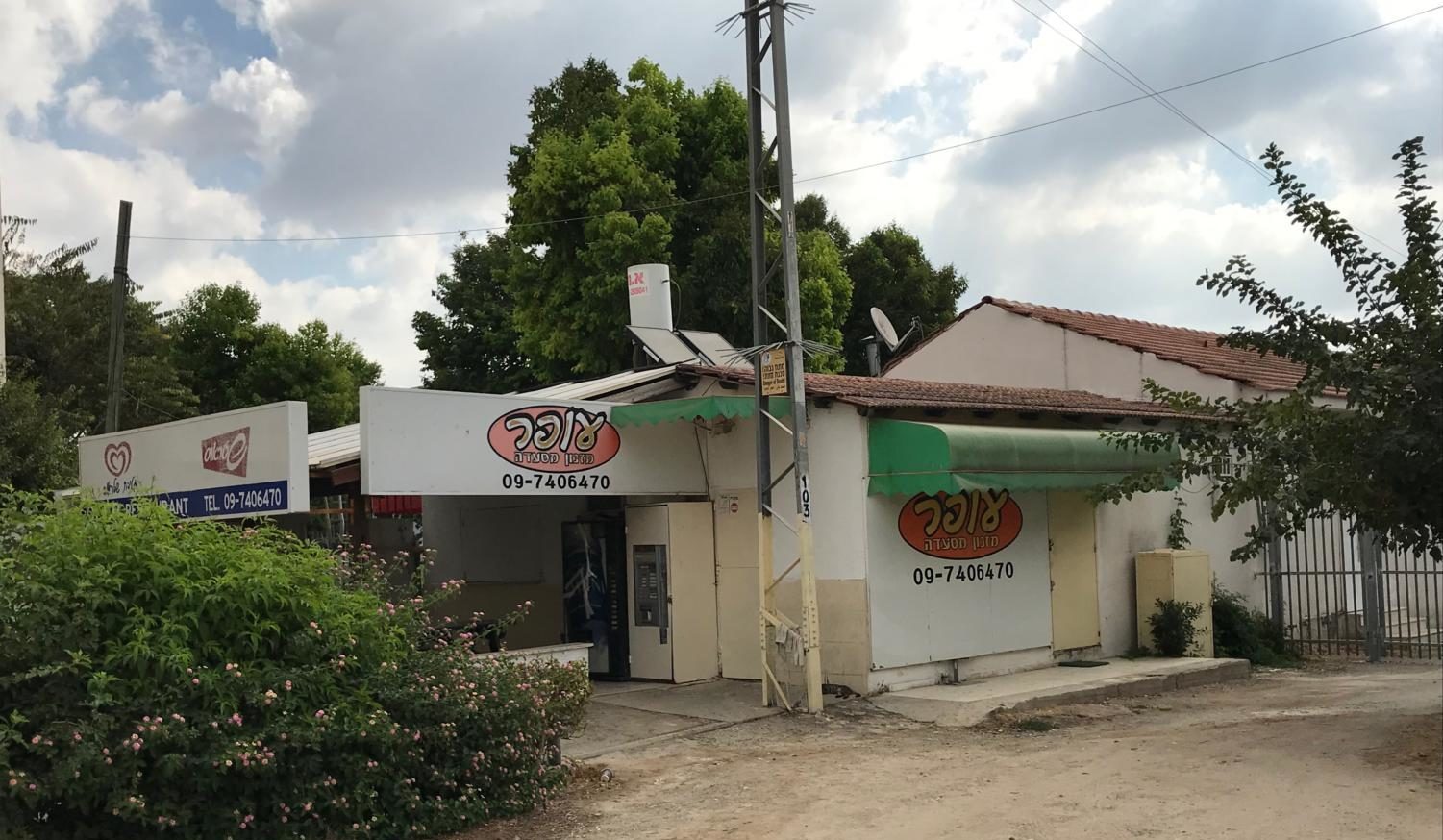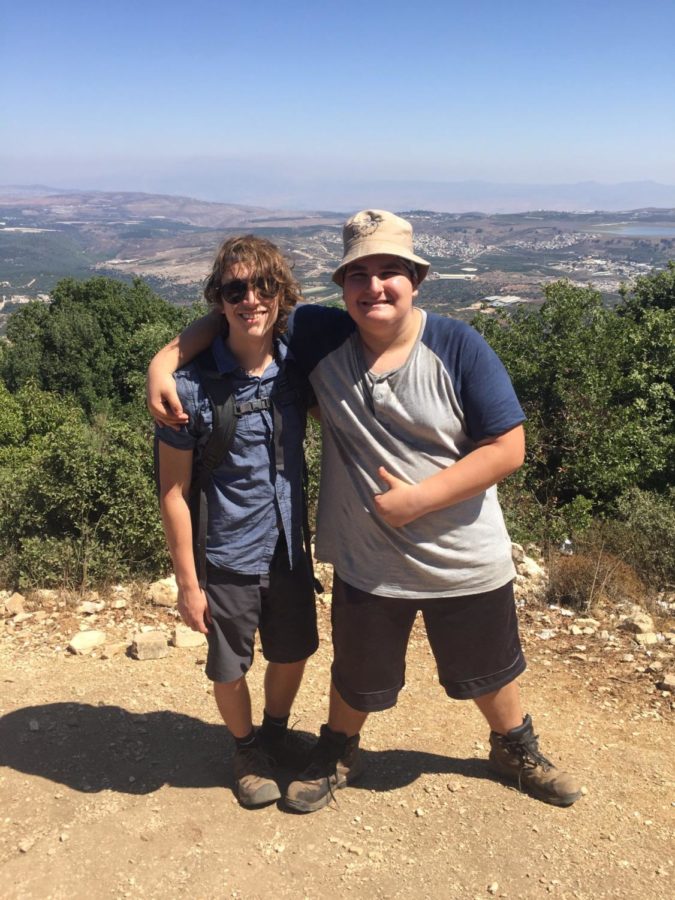Your donation will support the student journalists of Marquette High School. Your contribution will allow us to purchase equipment and cover our annual website hosting costs. You may become a PATRON by making a donation at one of these levels: White/$30, Green/$50, Blue/$100. Patron names will be published in the print newsmagazine, on the website and once per quarter on our social media accounts.
An Atheist Pilgrimage Part II
October 2, 2019
Hey, Michael here. It’s been more than four weeks since I wrote my last piece, and since then I’ve become more worried about becoming broke than getting hit by a rocket.
I’m surrounded by amazing places to eat – falafel stands, shawarma shops and an especially epic Japanese restaurant – but I only have a few shekels to spend. Financially, the problem has been that while Israeli cuisine is perfectly scrumptious, Israeli junk food isn’t anything to write home about.
Rather than buying a family-sized box of Cheez-Its from Costco and subsisting off of that for a week, my dietary cravings force me to instead go down the block and drop 30 shekels at the first sign of hunger. While I’m no victim to enjoying such a beautiful hummus-covered schnitzel – the ultimate savory snack wrapped in pita and topped with fried potatoes – this kind of everyday snack makes the budget for school supplies tight.
There are a plethora of experiences I’d like to pass on in this article. The new people I’ve met, my pitiful attempts to learn Hebrew, conversations about the recent Israeli elections or maybe the culture conflict between the Jewish Americans and the international Jews living on campus.
No, instead I’ve decided to talk about what I perceive as the key most important pillar of culture in Israel. The element of life here that is the greatest contrast between the Holy Land and some midwestern city between two rivers. An element of society so dramatic that its existence is almost literally an act of God: the restrictive diets.
Media by Michael Schmitz
My friend and I standing on the summit of a hill, which overlooks the Lebanese border, during our Yam LeYam hike (a four day hike from the Mediterrean Sea to the Sea of Galilee).
If you’re living in this country of 8 million, it’s almost certain you’re not eating whatever you want, whenever you want. In traditional Judaism, there is a special Kosher diet where adherents cannot eat particular animals (namely hooved animals like pigs) or eat dairy and meat in the same meal. I’m fairly sure I’ve been keeping Kosher, but it’s definitely not due to any religious observance on my part. Here, the fact is most of the time one simply doesn’t have the opportunity to break this custom. Dining halls serve dairy meals during breakfast and dinner while any meat is served at lunch.
Though this reality makes the custom universal on campus, some people take keeping Kosher more seriously than others. The other night, my religious friend couldn’t eat dinner with me at the dining hall; it had been less than 6 hours since we ate chicken at lunch, and thus eating would’ve been un-Kosher according to his strict understanding of the tradition.
Dietary restrictions are a large part of Israeli culture, religious or not. I’ve met six vegans here, all of whom are secular. In comparison, I’m pretty sure for my entire life I’ve only personally known three vegetarians in St. Louis.
The culture is different here in that even high schoolers heavily meditate over which types of food they choose to put into their bodies. It might sound stupid, but this idea of holding true to a diet has rubbed off on me. It feels like following a diet and not following a diet come from two very different outlooks on life.
You can go through life as it comes to you. Eating anything decent you can find in the cafeteria, trying to scrounge the best meal out of a list of disappointing options. You’re simply trying to get by – if it’s the day the lunch ladies are experimenting with something funky you’ll just play it safe and get a cheeseburger.
On the other hand, you can try and stand by a diet. Rather than approaching the times as they come, you decide to stay true to a creed no matter the meal. So what if the vegan options are lousy one day? You’re not a hedonist, and you’re not going to eat the aluminum wrapped burger even though it might be the best choice out of a poor selection. No, you answer to a set of values that are stronger than a lump of bland beef squashed between two stale buns. You don’t sail with the winds of fate, letting the Moirai take you where they please, you stand firm and carve your identity through the chilly breeze.
Media by Michael Schmitz
The Friedman dorm, the building on campus where I live, sleep, and hangout with my friends. I share my room with three other messy guys on the second level, while all the girls sleep on the first level.
For so long I’ve said I was ethically a vegetarian but practically lived as a carnivore. The latter has been so much more pragmatic, not to mention tastier. After all, 1 a.m. salads at Taco Bell don’t sound nearly as enticing as three beef crunch wraps.
One thing at least that coming to Israel has helped put into perspective for me though is the realization that the realm of dieting isn’t reserved for quick weight loss schemes. For thousands of years, it’s been an idea seeped in spirituality, sacrifice and self-discovery. I’ve resolved that I want to live by the morals I supposedly cherish, and for me, that means giving up meat.
I wanted to share this because I personally believe we could all do a better job of becoming the people we want to be. I know it’s hard in the middle of chaotic MHS life to really think about yourself and your identity, but I recommend giving it a chance.
Over these last four years, I’ve grown from a mid-pubescent tween into an adult who’s about to go to college, and I find myself asking if I’m currently the person who I’d be happy to let serve as the foundation to my adult life. The person you are when you finish high school could very well be the same person that decides your college major, the partner you marry, the place you live and the career you make.
So to sum up my thoughts: would you like to share some teriyaki tofu with me?



